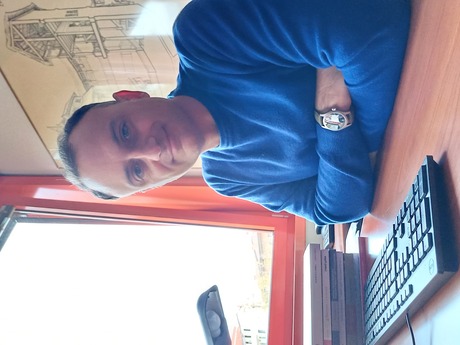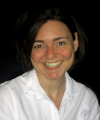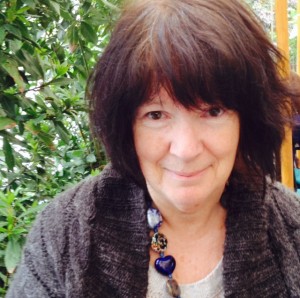Studying at the University of Verona
Here you can find information on the organisational aspects of the Programme, lecture timetables, learning activities and useful contact details for your time at the University, from enrolment to graduation.
Academic calendar
The academic calendar shows the deadlines and scheduled events that are relevant to students, teaching and technical-administrative staff of the University. Public holidays and University closures are also indicated. The academic year normally begins on 1 October each year and ends on 30 September of the following year.
Course calendar
The Academic Calendar sets out the degree programme lecture and exam timetables, as well as the relevant university closure dates..
| Period | From | To |
|---|---|---|
| I semestre (Lingue e letterature straniere) | Sep 30, 2019 | Jan 11, 2020 |
| II semestre (Lingue e letterature straniere) | Feb 17, 2020 | May 30, 2020 |
| Session | From | To |
|---|---|---|
| ESAMI LINGUE - sessione invernale | Jan 13, 2020 | Feb 15, 2020 |
| ESAMI LINGUE - sessione estiva | Jun 3, 2020 | Jul 25, 2020 |
| ESAMI LINGUE - sessione autunnale | Aug 24, 2020 | Sep 19, 2020 |
| Session | From | To |
|---|---|---|
| LAUREE LINGUE - sessione autunnale (a.a. 2018/19) | Nov 4, 2019 | Nov 9, 2019 |
| LAUREE LINGUE - sessione straordinaria (a.a. 2018/19) | Mar 30, 2020 | Apr 4, 2020 |
| LAUREE LINGUE - sessione estiva (a.a. 2019/20) | Jul 6, 2020 | Jul 11, 2020 |
| LAUREE LINGUE - sessione autunnale (a.a. 2019/20) | Nov 2, 2020 | Nov 7, 2020 |
| LAUREE LINGUE - sessione straordinaria (a.a. 2019/20) | Apr 7, 2021 | Apr 13, 2021 |
| Period | From | To |
|---|---|---|
| Festa Ognissanti (Lingue) | Nov 1, 2019 | Nov 1, 2019 |
| Sospensione delle lezioni | Nov 2, 2019 | Nov 2, 2019 |
| Vacanze di Natale (Lingue) | Dec 23, 2019 | Jan 6, 2020 |
| Vacanze di Pasqua (Lingue) | Apr 10, 2020 | Apr 14, 2020 |
| Festa della Liberazione (Lingue) | Apr 25, 2020 | Apr 25, 2020 |
| Festa del Lavoro (Lingue) | May 1, 2020 | May 1, 2020 |
| Sospensione delle lezioni | May 2, 2020 | May 2, 2020 |
| Festa del Santo Patrono (Lingue) | May 21, 2020 | May 21, 2020 |
| Sospensione delle lezioni | May 22, 2020 | May 23, 2020 |
| Festa della Repubblica (Lingue) | Jun 2, 2020 | Jun 2, 2020 |
| Vacanze estive (Lingue) | Aug 10, 2020 | Aug 15, 2020 |
Exam calendar
Exam dates and rounds are managed by the relevant Foreign Languages and Literatures Teaching and Student Services Unit.
To view all the exam sessions available, please use the Exam dashboard on ESSE3.
If you forgot your login details or have problems logging in, please contact the relevant IT HelpDesk, or check the login details recovery web page.
Should you have any doubts or questions, please check the Enrollment FAQs
Academic staff
 piergiovanna.grossi@univr.it
piergiovanna.grossi@univr.it
 luca.mazzoni@univr.it
luca.mazzoni@univr.it
 sara.paolini@univr.it
sara.paolini@univr.it
 matteo.tirelli@univr.it
matteo.tirelli@univr.it
 silvia.zollo@univr.it
silvia.zollo@univr.it
Study Plan
The Study Plan includes all modules, teaching and learning activities that each student will need to undertake during their time at the University.
Please select your Study Plan based on your enrollment year.
1° Year
| Modules | Credits | TAF | SSD |
|---|
2° Year activated in the A.Y. 2020/2021
| Modules | Credits | TAF | SSD |
|---|
3° Year activated in the A.Y. 2021/2022
| Modules | Credits | TAF | SSD |
|---|
| Modules | Credits | TAF | SSD |
|---|
| Modules | Credits | TAF | SSD |
|---|
| Modules | Credits | TAF | SSD |
|---|
Legend | Type of training activity (TTA)
TAF (Type of Educational Activity) All courses and activities are classified into different types of educational activities, indicated by a letter.
Sociology of culture and communication (2020/2021)
Teaching code
4S008101
Teacher
Coordinator
Credits
6
Language
Italian
Scientific Disciplinary Sector (SSD)
SPS/08 - SOCIOLOGY OF CULTURE AND COMMUNICATION
Period
II semestre (Lingue e letterature straniere) dal Feb 15, 2021 al May 29, 2021.
Learning outcomes
The course is oriented to introduce students to the critical knowledge of: 1. the concept of culture and its components in a sociological perspective; 2. the characteristics of main cultural processes in act in contemporary western societies; 3. the role oral and written communication in contemporary cultural processes. At the end of the course the student must demonstrate: 1. to know how to use the concept of culture as defined by contemporary human and social sciences; 2. to have a conceptual repertoire and a specific lexicon to appropriately describe the cultural phenomena of contemporaneity; 3. to be aware of the major cultural processes that are at work in the complex western societies of this beginning of the millennium and in particular to be aware of the distinctive features of the modern culture of the Western societies; 4. to know how to apply general concepts to cultural processes that explain the cultural industry and in particular the industrial production of printed texts.
Program
The course will be divided into three parts, in which the following topics will be developed:
Part I
Sociological introduction to the topics
What is society and what is a social fact? Social Relationship as the Basic Concept and Object of Sociological Knowledge. The different approaches in studying social relationships.
Part II
Culture and Society
1) The concept of culture in social sciences.
A. What is culture (humanistic, anthropological and sociological pe rspectives in comparison);
B. A tool to study cultural processes: the cultural diamond
C. What are the basic elements of culture (meanings, symbols, languages, codes, values, social norms, rites, myths).
D. What are the social functions of culture (relationships among, nature, culture and society, the generalised other and the sub-cutures).
2) Production, Distribution and Reception of Culture.
A. The fields of production of culture (science, law, art, religion, communication).
Part III:
The book in the modernization process:
1) Cultural aspects of societies in mature modernity.
2) Human communication as an instrument for transmitting culture.
3) Orality, writing and mass communication in the modernization process.
4) The cultural industry.
| Author | Title | Publishing house | Year | ISBN | Notes |
|---|---|---|---|---|---|
| Ong W. | Oralità e scrittura | il Mulino | 2014 | 9788815250568 | Capitoli 3, 4, 5. |
| Griswold W. | Sociologia della cultura | il Mulino | 2005 | 9788815107114 | |
| Donati P. | Sociologia della relazione (Edizione 1) | il Mulino | 2013 | Capitoli 1, 2, 5. |
Examination Methods
Assessment methods and criteria
The assessment test is aimed at verifying the acquisition of specific concepts and vocabulary enabling the student to independently elaborate an interpretation and a description of the main cultural processes in place in complex western societies. In particular, students will be required to independently analyze the communication processes transmitted by the press.
The examination takes place in person. The remote mode is however guaranteed for all students who will ask for it in the Academic Year 2020/21.
Bibliography for the evaluation:
A. Donati, Sociologia della relazione, Bologna, il Mulino, capitoli 1, 2, 5..
B. Griswold W., Sociologia della cultura, Bologna, Il Mulino.
C. Ong W., Oralità e scrittura, Bologna, Il Mulino (capp. 3,4,5/pagg 77-198).
D. Slides available at the e-learning web page.
Exam modality:
Normally the course requires a final oral assessment (exam) of the contents acquired by the students.
However, at the end of the course, is scheduled a written exam (test of about 32 questions and 4 items per question) on the first two books of the reading list (A e B).
Only students who reach a mark of at least 18/30 pass the test.
The mark obtained is valid till February 2022.
The test takes place only once a year.
The written test is aimed at verifying the acquisition of concepts and the specific vocabulary of the sociology of cultural processes.
Those who pass the written test must support a further oral examination on the remaining part of the program (letter C of bibliography). The second oral assesment (exam) will be held in the ordinary calls of June, July, September 2021 and the months of January and February 2022.
Those who don’t take or pass the first written exam, will present the whole syllabus at the oral exams that take place in the normal sessions.
Those who pass the written test, but do not complete the examination procedure (the oral exam on the second part of the program) before February 2022 must take the exam on the whole syllabus in oral form.
Type D and Type F activities
To discover all the teaching activities accredited by the foreign teaching college click here
Career prospects
Module/Programme news
News for students
There you will find information, resources and services useful during your time at the University (Student’s exam record, your study plan on ESSE3, Distance Learning courses, university email account, office forms, administrative procedures, etc.). You can log into MyUnivr with your GIA login details: only in this way will you be able to receive notification of all the notices from your teachers and your secretariat via email and soon also via the Univr app.
Student login and resources
Gestione carriere
Assegnazione tutore
Attività accreditate D/F
Calendario didattico dettagliato
Cambio lingua curriculare
Competenze informatiche
Competenze linguistiche (prima e seconda lingua)
Competenze linguistiche in triennale (terza lingua CFU F)
Compilazione del piano didattico
Corso di Lingua portoghese
Erasmus+ e altre esperienze all'estero
Linguistic training CLA
Presentazione dei corsi di studio e Open day
Graduation
List of theses and work experience proposals
| Stage | Research area |
|---|---|
| PROGETTO MAMBRINO Stage per bibliografia | Various topics |
Saperi minimi
Stage e tirocini
Nel piano didattico della laurea triennale in Lingue e letterature per l’editoria e i media digitali (L11 ED-DH) è previsto un tirocinio/stage obbligatorio (CFU 6).
Le attività di stage sono finalizzate a far acquisire allo studente una conoscenza diretta in settori di particolare interesse per l’inserimento nel mondo del lavoro e per l’acquisizione di abilità professionali specifiche.
Le attività di stage sono svolte sotto la diretta responsabilità di un singolo docente presso studi professionali, enti della pubblica amministrazione, aziende accreditate dall’Ateneo veronese.
I crediti maturati in seguito ad attività di stage saranno attribuiti secondo quanto disposto nel dettaglio dal “Regolamento d’Ateneo per il riconoscimento dei crediti maturati negli stage universitari” vigente.
- Tutte le informazioni in merito agli stage per futuri studenti sono disponibili alla pagina Stage e tirocini.
- Tutte le informazioni in merito agli stage per studenti iscritti sono pubblicate in MyUnivr - come fare per - stage e tirocini.
- Tutte le informazioni in merito agli stage per le aziende sono disponili alla pagina Stage e tirocini per azienze.
Ulteriori informazioni al seguente link https://www.univr.it/it/i-nostri-servizi/gestione-carriere-studenti-lingue-e-letterature-straniere/stage-e-tirocini-lingue-e-letterature-straniere

 +39 045802 8409
+39 045802 8409































